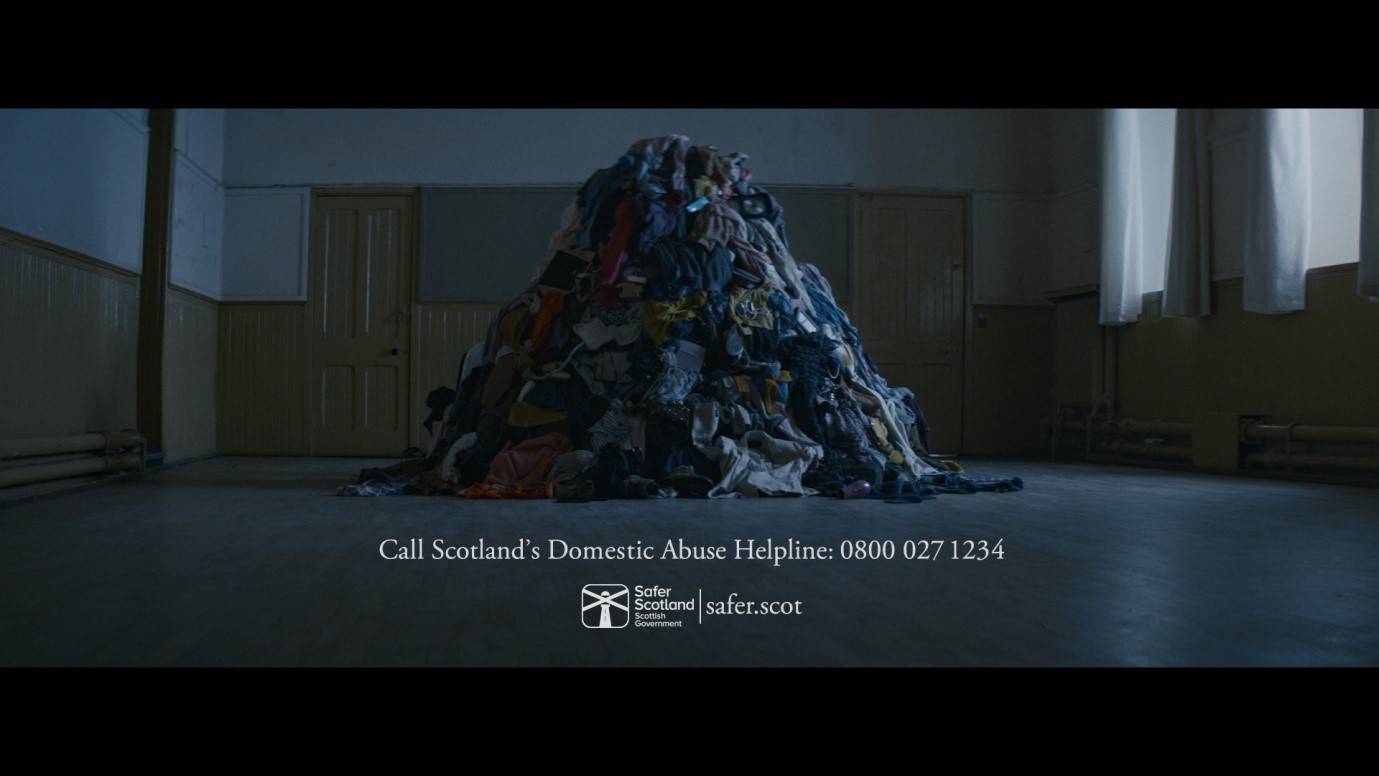Domestic Abuse

An estimated 1 in 4 women experience domestic abuse in Scotland
Gender Based Violence (GBV) including Domestic Abuse – within or outside the workplace – is bad for health and well-being in the short and longer term. It can also affect your performance or productivity at work.
What is Domestic Abuse?
Domestic abuse is a pattern of controlling, coercive, threatening, degrading and/or violent behaviour, including sexual violence, often by a partner or ex-partner. Domestic abuse is overwhelmingly experienced by women and perpetrated by men. However domestic abuse can also happen to men. It doesn’t matter how old someone is, what race or ethnicity they are, what they do for a living, whether or not they are disabled, or whether they have children – anyone can be a victim of abuse.
Often when people think of domestic abuse they think of physical violence. Some women do live with physical violence resulting in e.g. scarring, bruising and broken bones. However, for others domestic abuse may leave no outward signs and yet its effects can take over people’s lives.
More than anything, domestic abuse is about control. It is not usually a one off incident/issue. It usually happens again and again and the abusive partner will try different things to gain control. It usually gets worse over time, and for many women it can continue even after a relationship has ended.
Examples of domestic abuse include
- Coercive (a pattern of intimidation, degradation, isolation and control with the use or threat of physical or sexual violence)
- Psychological and/or emotional abuse
- Physical or sexual abuse
- Financial or economic abuse
Domestic abuse undermines the victim’s independence and might include monitoring and restricting mobile phone usage, controlling bank account access, dictating outfit choices, meal times or friendships. Controlling behaviour takes away your choices in life and the things that make you, you.
Domestic abuse is hugely damaging for victims, their families and communities and can leave victims feeling isolated, frightened and humiliated.
If domestic abuse is happening to you, it's important to tell someone and remember you are not alone. If you’re not ready to report it, you can still seek support.
How to report abuse
If you, or someone you know, is or may be at risk of domestic abuse, please contact Police Scotland or our partner agencies for help.
You can contact us via our online reporting form however if the abuse is ongoing please always phone 101, or 999 in an emergency.
Or contact Scotland’s Domestic Abuse and Forced Marriage Helpline on 0800 027 1234, where support is available 24/7.